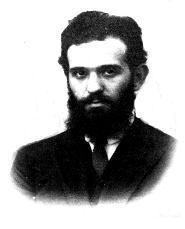
The Socialist Republic of Romania was a Marxist–Leninist one-party socialist state that existed officially in Romania from 1947 to 1989. From 1947 to 1965, the state was known as the Romanian People's Republic. The country was an Eastern Bloc state and a member of the Warsaw Pact with a dominant role for the Romanian Communist Party enshrined in its constitutions. Geographically, RSR was bordered by the Black Sea to the east, the Soviet Union to the north and east, Hungary and Yugoslavia to the west, and Bulgaria to the south.
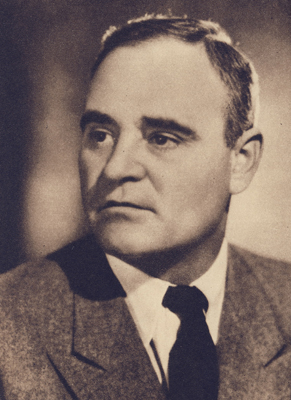
Gheorghe Gheorghiu-Dej was a Romanian politician and electrician. He was the first Communist leader of Romania from 1947 to 1965, serving as first secretary of the Romanian Communist Party from 1944 to 1954 and from 1955 to 1965, and as the first Communist Prime Minister of Romania from 1952 to 1955.

The Romanian Communist Party was a communist party in Romania. The successor to the pro-Bolshevik wing of the Socialist Party of Romania, it gave an ideological endorsement to a communist revolution that would replace the social system of the Kingdom of Romania. After being outlawed in 1924, the PCR remained a minor and illegal grouping for much of the interwar period and submitted to direct Comintern control. During the 1920s and the 1930s, most of its activists were imprisoned or took refuge in the Soviet Union, which led to the creation of competing factions that sometimes came into open conflict. That did not prevent the party from participating in the political life of the country through various front organizations, most notably the Peasant Workers' Bloc. During the mid-1930s, due to the purges against the Iron Guard, the party was on the road to achieving power, but the dictatorship of king Carol II crushed this. In 1934–1936, PCR reformed itself in the mainland of Romania properly, with foreign observers predicting a possible communist takeover in Romania. The party emerged as a powerful actor on the Romanian political scene in August 1944, when it became involved in the royal coup that toppled the pro-Nazi government of Ion Antonescu. With support from Soviet occupational forces, the PCR pressured King Michael I into abdicating, and it established the Romanian People's Republic in December 1947.

Ana Pauker was a Romanian communist leader and served as the country's foreign minister in the late 1940s and early 1950s. Ana Pauker became the world's first female foreign minister when entering office in December 1947. She was also the unofficial leader of the Romanian Communist Party immediately after World War II.

Lucrețiu Pătrășcanu was a Romanian communist politician and leading member of the Communist Party of Romania (PCR), also noted for his activities as a lawyer, sociologist and economist. For a while, he was a professor at the University of Bucharest. Pătrășcanu rose to a government position before the end of World War II and, after having disagreed with Stalinist tenets on several occasions, eventually came into conflict with the Romanian Communist government of Gheorghe Gheorghiu-Dej. He became a political prisoner and was ultimately executed. Fourteen years after Pătrășcanu's death, Romania's new communist leader, Nicolae Ceaușescu, endorsed his rehabilitation as part of a change in policy.

Vasile Luca was an Austro-Hungarian-born Romanian and Soviet communist politician, a leading member of the Romanian Communist Party (PCR) from 1945 and until his imprisonment in the 1950s. Noted for his activities in the Ukrainian SSR in 1940–1941, he sided with Ana Pauker during World War II, and returned to Romania to serve as the minister of finance and one of the most recognizable leaders of the Communist regime. Luca's downfall, coming at the end of a conflict with Gheorghe Gheorghiu-Dej, signaled that of Pauker.

Elek Köblös was an Austro-Hungarian-born Hungarian and Romanian communist activist and political leader. He was also known by the pseudonyms Balthazar, Bădulescu, and Dănilă. He served as general secretary of the Romanian Communist Party from 1924 to 1927 and was executed in the Soviet Union during the Great Purge.

Gheorghe Apostol was a Romanian politician, deputy Prime Minister of Romania and a former leader of the Communist Party (PCR), noted for his rivalry with Nicolae Ceaușescu.
Vitali Holostenco or Holostenko was a Romanian and Soviet communist politician. He used several pseudonyms, among which were Barbu and Petrulescu.

Miron Constantinescu was a Romanian communist politician, a leading member of the Romanian Communist Party, as well as a Marxist sociologist, historian, academic, and journalist. Initially close to Communist Romania's leader Gheorghe Gheorghiu-Dej, he became increasingly critical of the latter's Stalinist policies during the 1950s, and was sidelined together with Iosif Chișinevschi. Reinstated under Nicolae Ceauşescu, he became a member of the Romanian Academy.

Boris Stefanov Mateev was a Romanian communist politician, who served as general secretary of the Romanian Communist Party from 1936 to 1940.
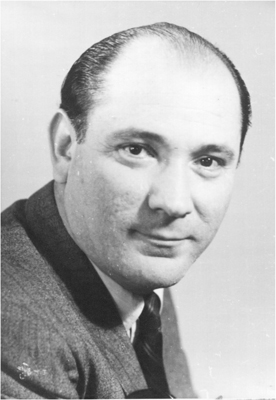
Teohari Georgescu was a Romanian statesman and a high-ranking member of the Romanian Communist Party.
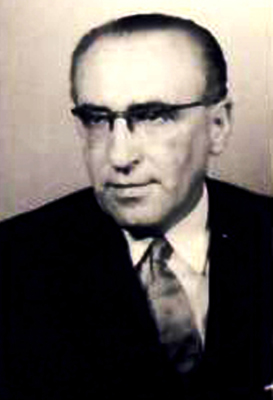
Valter or Walter Roman, born Ernst or Ernő Neuländer, was a Romanian communist activist and soldier. During his lifetime, Roman was active inside the Romanian, Czechoslovakian, French, and Spanish Communist parties as well as being a Comintern cadre. He started his military career as a volunteer in the International Brigades during the Spanish Civil War, and rose to prominence in Communist Romania, as a high-level politician and military official.

Iosif Chișinevschi was a Romanian communist politician. The leading ideologue of the Romanian Communist Party (PCR) from 1944 to 1957, he served as head of its Agitprop Department from 1948 to 1952 and was in charge of propaganda and culture from 1952 to 1955. He has been described as "Moscow's right-hand man in Romania".
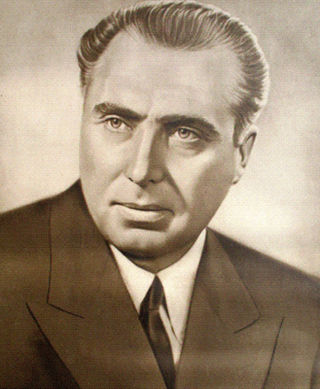
Petre Borilă was a Romanian communist politician who briefly served as Vice-Premier under the Communist regime. A member of the Romanian Communist Party (PCR) since his late teens, he was a political commissar in the Spanish Civil War and a Comintern cadre afterwards, spending World War II in exile in the Soviet Union. Borilă returned to Romania during the late 1940s, and rose to prominence under Communist rule, when he was a member of the PCR's Central Committee and Politburo.

Alexander Danieliuk-Stefanski was a Polish communist politician, active in Poland and in the Soviet Union. From 1931 to 1936, he oversaw the activities of Romanian communists in exile to the Soviet Union, and served as General Secretary of the Romanian Communist Party (PCdR). During the period, he was seconded by Elena Filipescu, who was also his lover.
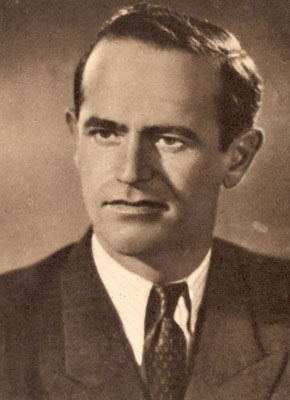
Alexandru Moghioroș was a Romanian communist activist and politician.

Alexandru Drăghici was a Romanian communist activist and politician. He was Interior Minister in 1952 and from 1957 to 1965, and State Security Minister from 1952 to 1957. In these capacities, he exercised control over the Securitate secret police during a period of active repression against other Communist Party members, anti-communist resistance members and ordinary citizens.
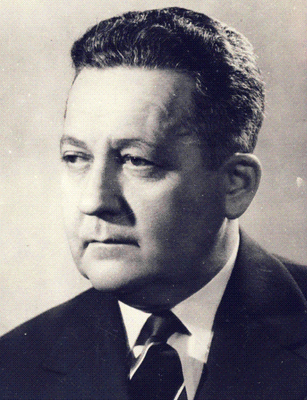
Leonte Răutu was a Bessarabian-born Romanian communist activist and propagandist, who served as deputy prime minister in 1969–1972. He was chief ideologist of the Romanian Communist Party during the rule of Gheorghe Gheorghiu-Dej, and one of his country's few high-ranking communists to have studied Marxism from the source. Răutu was of Jewish origin, though he embraced atheism and anti-Zionism. His adventurous youth, with two prison terms served for illegal political activity, culminated in his self-exile to the Soviet Union, where he spent the larger part of World War II. Specializing in agitprop and becoming friends with communist militant Ana Pauker, he joined the Romanian section of Radio Moscow.
Remus Koffler was a Romanian communist activist who, during the 1930s and 1940s, helped assure financing for the Romanian Communist Party. Arrested in 1949 as an inconvenient survivor, he was executed over four years later.
